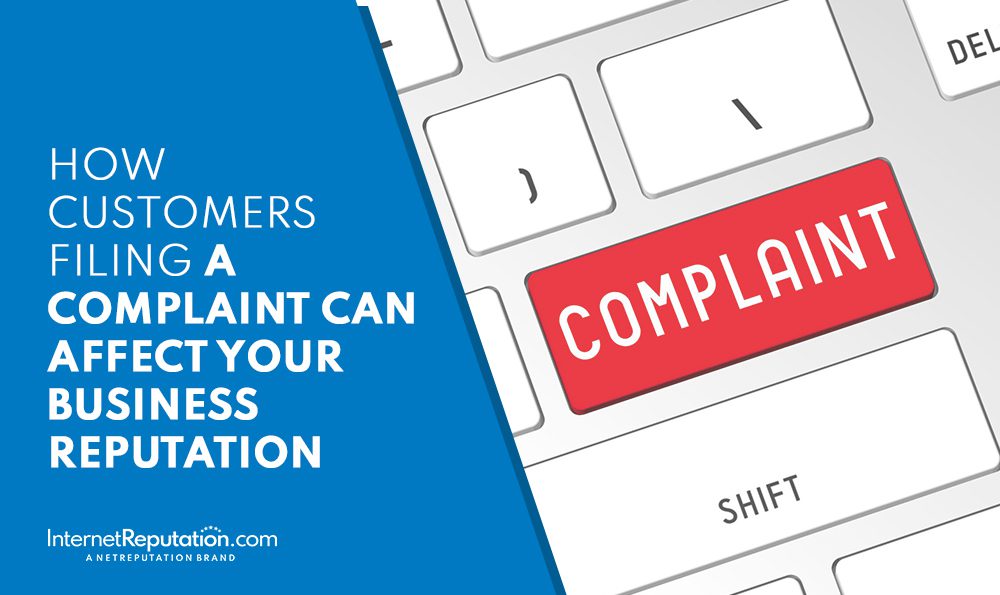How Customers Filing a Complaint Can Affect Your Business Reputation

Many customers seek resolution for unmet expectations by filing a complaint. This action provides critical feedback for businesses, allowing them to improve services and enhance customer satisfaction.
Why Do Customers File Complaints?
Customers often file complaints to express dissatisfaction with service or product quality. Understanding how filing a complaint works helps both customers and businesses address and resolve issues more effectively. By examining these complaints, businesses can adjust their strategies to mitigate future dissatisfaction.
Unhappy customers often resort to online reviews and social media to express their grievances, which can significantly impact a company’s reputation and customer loyalty. Understanding these motivations enables businesses to transform complaints into opportunities for service enhancement and build long-term relationships through proactive engagement.
Transforming Complaints into Opportunities
Successfully handling complaints can turn a negative situation into a positive one. Businesses can promptly address filed complaints and build customer loyalty and a more substantial brand reputation. Businesses can identify patterns and address root issues by carefully analyzing each instance of a customer filing a complaint, transforming complaints into actionable insights to refine their offerings.
This approach strengthens the company’s reputation and provides critical insights into areas needing improvement, allowing businesses to refine their products and services. Proactive customer engagement helps build long-term relationships and foster a loyal customer base.
What Happens When a Customer Files a Complaint?
1. Internal Investigation
Once a customer files a complaint, an internal investigation typically follows. This process involves collecting data and understanding the root causes behind the complaint. An effective internal investigation can highlight areas needing improvement and refine business practices.
The insights gained from these investigations are vital for recommending improvements and refining current practices. This emphasis on thorough analysis and documentation not only aids in effective resolution but also promotes continuous service improvement, ensuring that future complaints are managed more efficiently and effectively.
2. Response to the Customer
A well-timed and thoughtful response to filed complaints is crucial. Customers appreciate feeling acknowledged and understood. Businesses should ensure their response addresses the complaint’s root cause, as this can turn dissatisfied customers into loyal advocates.
Best practices involve actively listening to gather valuable insights, clearly communicating to explain the resolution process, and providing timely responses demonstrating respect for the customer’s time. By implementing these strategies, businesses can enhance the customer experience, build loyalty, and improve retention.
3. Damage Control
Damage control involves proactive measures to manage customer dissatisfaction after filing a complaint. This step is crucial to safeguarding the brand’s reputation and maintaining customer trust. By addressing grievances sincerely and promptly, businesses can reduce the potential negative impact on their reputation.
The first step involves establishing a strategic framework to address grievances empathetically and effectively. This includes actively listening to customer feedback and offering timely, sincere responses. Businesses can demonstrate their commitment to understanding and resolving customer concerns.
The next phase is learning from service failures to prevent future occurrences. Improving communication to keep customers informed is vital in this step. A well-implemented damage control strategy fosters lasting relationships, enhances brand loyalty, and reinforces essential customer service practices.
Government Agency Involvement
Government agencies play a significant role in managing filed complaints. Agencies like the FTC, CFPB, and local authorities provide avenues for consumer redress, ensure businesses comply with regulations, and protect consumer rights.
- Consumer Protection Agencies: Agencies like the FTC and CFPB assist in filing complaints and provide resources for resolution.
- State Attorney General’s Office: Acts as an intermediary in filed complaints at the state level, helping consumers receive fair treatment.
- Local Police: In cases of criminal complaints, local authorities can investigate and offer additional support.
By understanding the role of these agencies, businesses can better navigate the complaint process and ensure compliance with relevant laws, ultimately protecting their reputation and fostering consumer trust.
How Can Customer Complaints Affect Your Business Reputation?
Customer complaints, especially those filed publicly online, can significantly impact a business’s reputation. However, addressing complaints effectively can prevent damage and sometimes even improve brand perception, transforming dissatisfied customers into advocates.
Negative online reviews highlight customer dissatisfaction and can deter new customers, making proactive feedback collection essential for managing the brand image. Word of mouth also plays a crucial role, as positive and negative experiences can spread rapidly, requiring vigilant reputation management.
Complaints directly impact sales, as unresolved issues can decrease retention and revenue loss. Additionally, a loss of trust and credibility can harm long-term relationships, making effective complaint resolution vital for rebuilding trust and fostering deeper customer connections. Ultimately, prioritizing customer feedback and communication can mitigate the effects of negative reviews and enhance overall brand loyalty.
How to Handle Customer Complaints Effectively?
Handling filed complaints efficiently involves a structured, empathetic approach. Acknowledging and addressing each complaint helps businesses build stronger relationships and fosters customer trust. Clear communication and follow-up are essential to show customers that their concerns are taken seriously.
Acknowledging complaints, offering sincere apologies, and taking responsibility are vital to rebuilding trust. Additionally, providing solutions or compensation can turn dissatisfaction into loyalty. Following up with customers after a resolution further demonstrates a commitment to service improvement. This ongoing engagement, supported by effective feedback management systems, strengthens customer relations and contributes to long-term business success.
How Can You Prevent Customer Complaints?
Preventing complaints starts with providing exceptional service and quality products. Setting clear expectations and proactively engaging with customers helps prevent common reasons for filing complaints. Regular monitoring and feedback collection allow businesses to address concerns before they escalate into formal complaints.
Providing outstanding service consistently surpasses expectations, fostering trust and brand loyalty. Effective communication further strengthens customer relationships by clarifying expectations and facilitating timely feedback through surveys and social media monitoring.
Monitoring customer sentiment and implementing continuous improvements based on feedback is essential for maintaining high standards and adapting to evolving customer needs. By actively listening to customers and involving all organizational levels in this process, businesses can cultivate a culture of continuous improvement, ultimately driving long-term success and loyalty.



